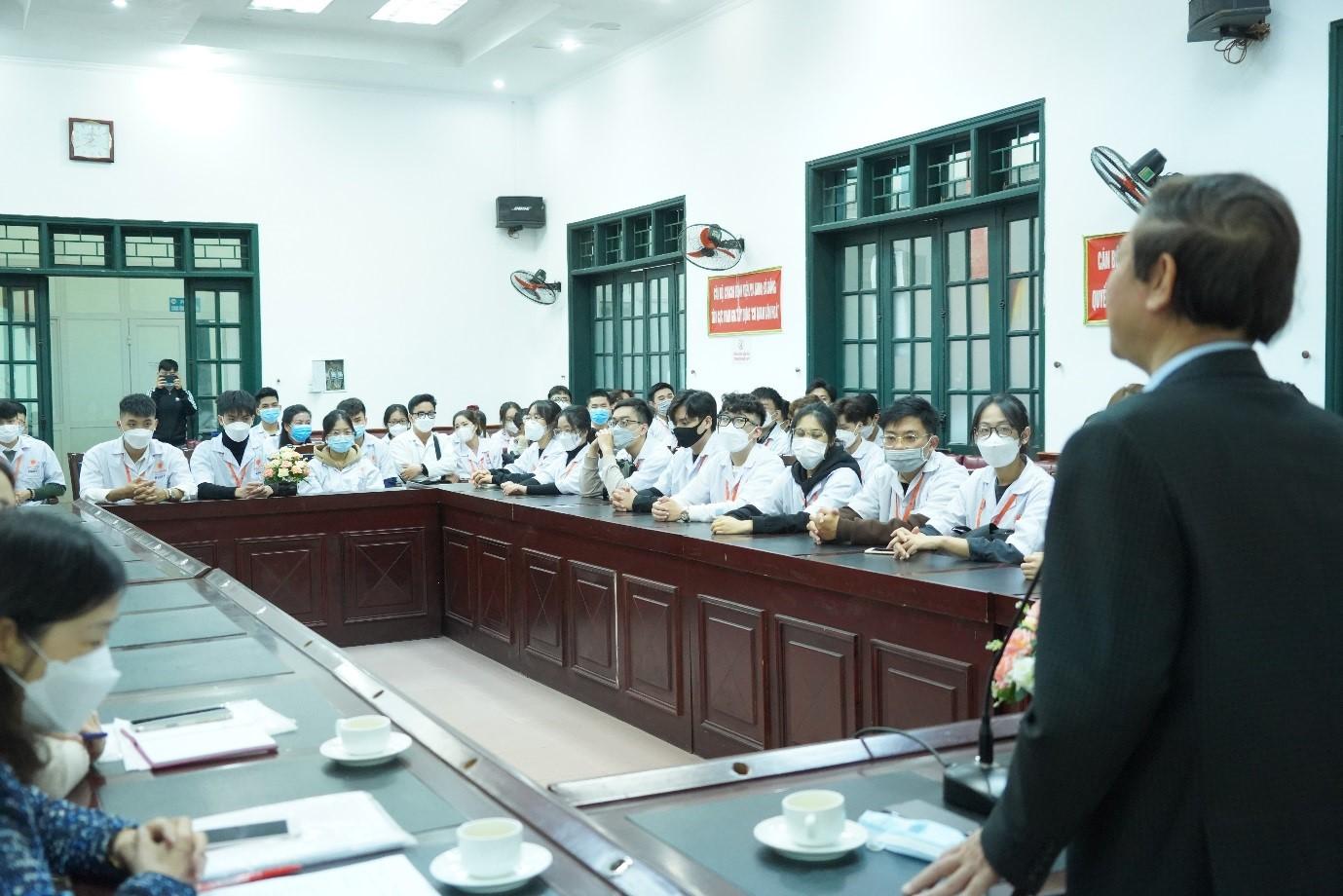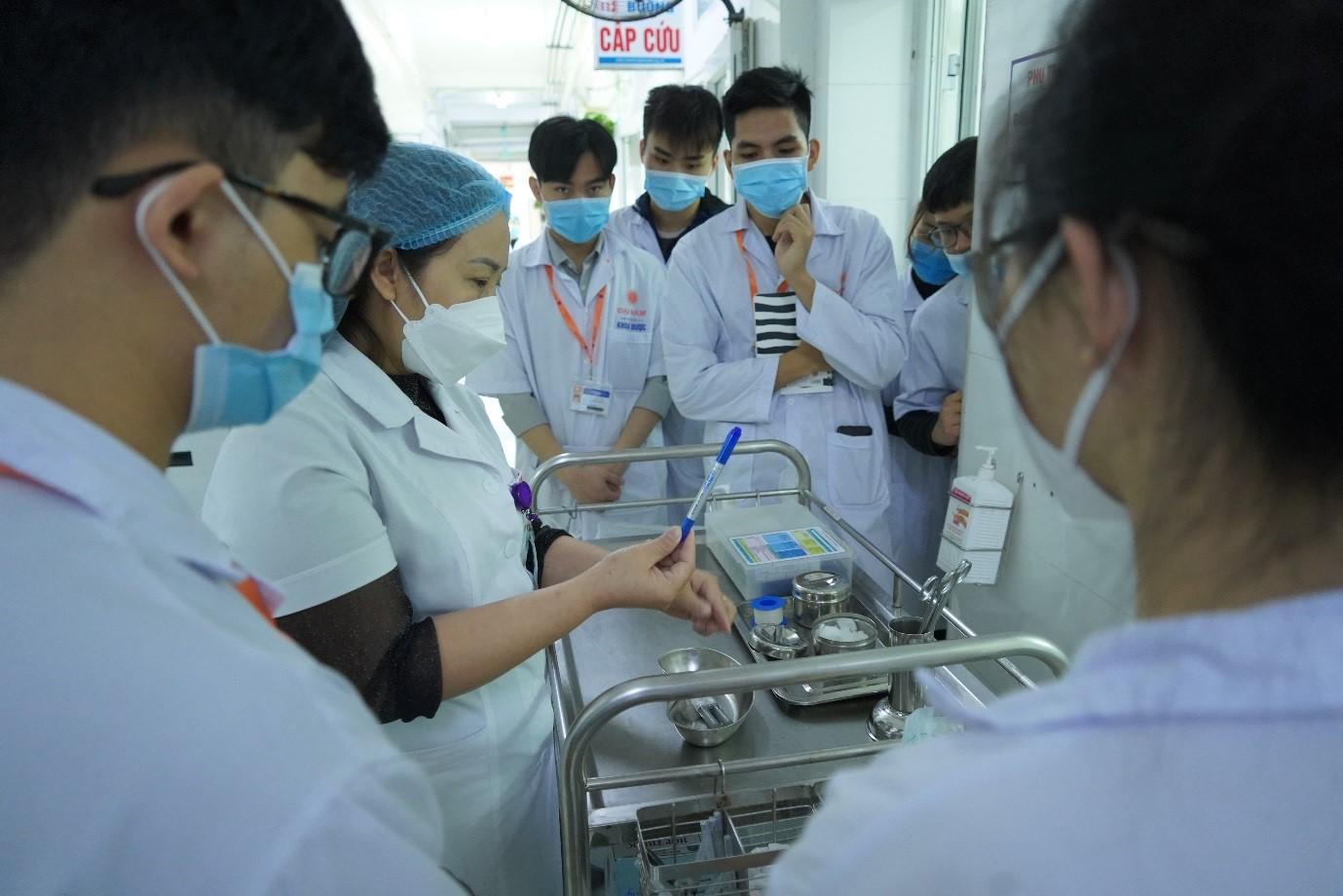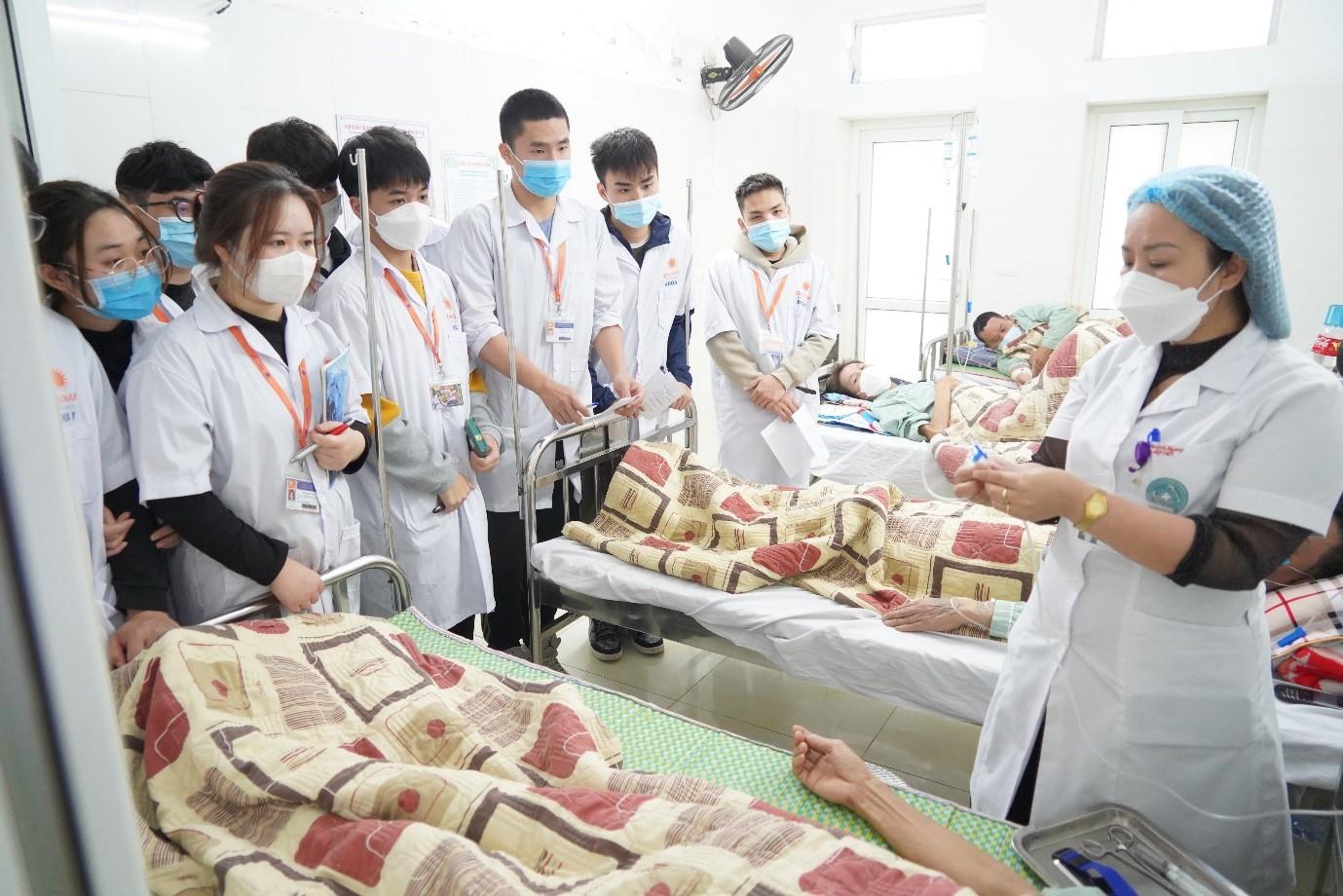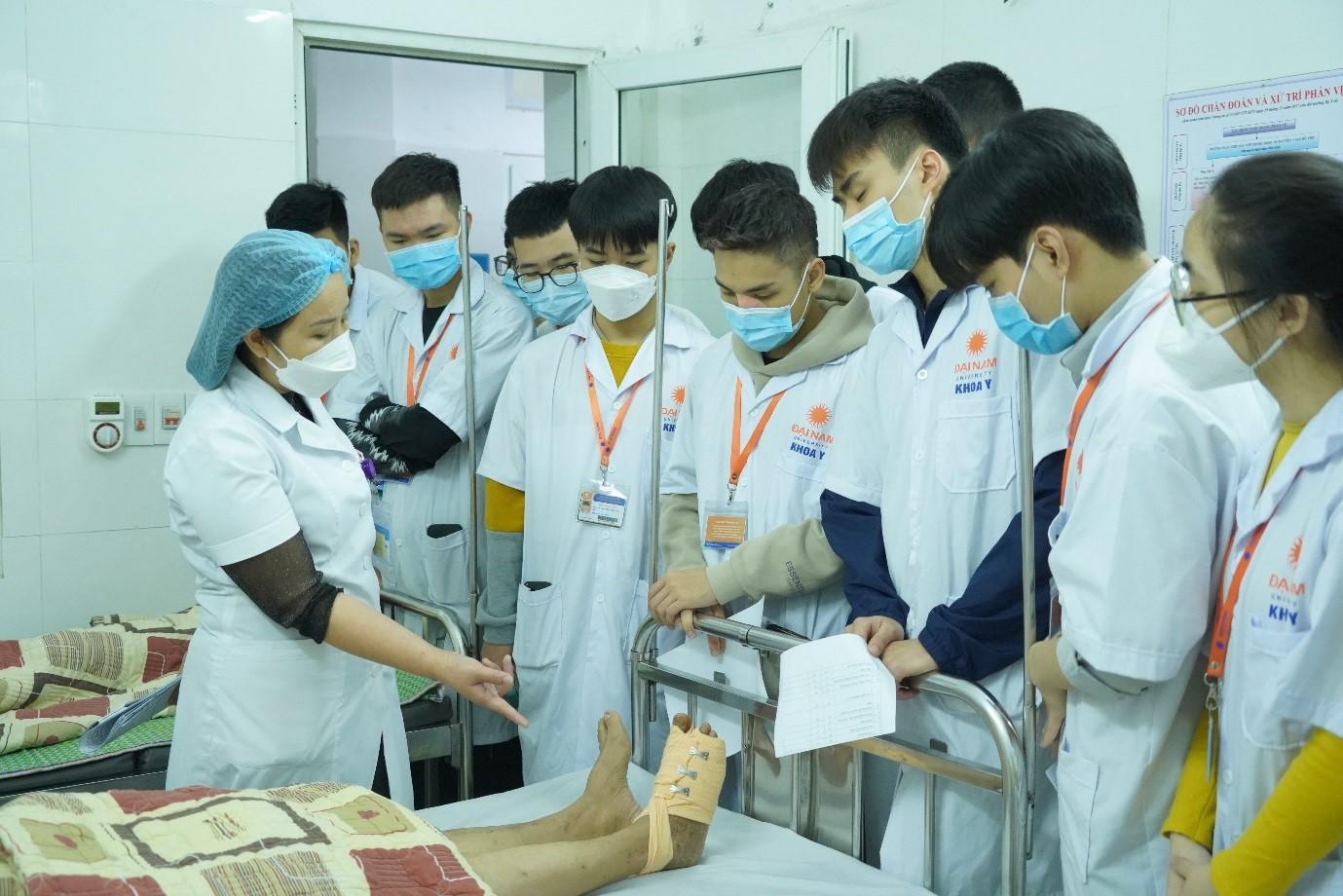Going to clinical practice at the hospital, what do medical students need to prepare?

To successfully complete the internship targets as well as accumulate more knowledge, experience, and perfect future career skills, in addition to great efforts, medical students need to have thorough preparation for going to the hospital. So, what do medical students need to prepare for clinical practice at the hospital?
The following article shares the clinical internship experience of Associate Professor, Dr. Do Son Ha - lecturer of the Faculty of Medicine, Dai Nam University with more than 40 years of experience working and training in the medical field.

Medical students do clinical internship at Ha Dong General Hospital.
Before going to the hospital
- You need to review all the theoretical knowledge and practice proficiently on the model according to the checklist. Read many reference materials and watch videos on clinical skills over and over again.
- When you go to practice, set clear goals for each session, each week, each month. The clearer and more specific the goal, the better, and it must be feasible, measurable, and time-bound. For example, today's goal is to perform 3 intravenous injections, 1 intramuscular injection, and practice 1 gastric tube placement. Each week, you must create 2 patient care plans in that department...
- Refer to the clinical learning experiences of previous students and ask for advice from lecturers to have the most effective study plan.

Before going to clinical practice at the hospital, DNU medical students learn theory and practice proficiently on modern models at the school.
When to the hospital
- Strictly comply with all hospital regulations.
- Neat in dress, hair, and demeanor: Always wear a blouse, hat, mask, and student ID card when coming to the hospital. Hair must be neat, no long nails, and no blouse must be worn outside the hospital area.
- Go to school and be on duty at the scheduled time. Absolutely do not skip duty.
- Limit the use of phones for personal use during clinical studies at the hospital.
- A clinical notebook is needed to record what is learned and necessary notes.
- Participate fully in clinical meetings. This is an opportunity for medical students to learn about new diseases, review old knowledge, learn how to make medical records, care plans, and learn from the experiences of doctors, nurses and friends.
- Communicate with patients and medical staff with a polite, caring, thoughtful, and enthusiastic attitude...

Ensure confidence when going to hospital clinical training.
- When asking for information to plan patient care, interns should prepare questions in advance and should go in groups to avoid patients being asked multiple times. Pay attention to taking careful notes to avoid missing information. You should read the documents about that disease in advance and refer to the medical record. In particular, avoid discussing the disease condition in front of the patient.
- Always proactively perform nursing techniques on patients under the guidance of instructors and medical staff in the ward.
- You should proactively ask questions about things you do not understand, refer to medical records and nursing records.
- Medical students who go on internships need to be careful, pay attention to safety issues, and only perform techniques that they understand under the guidance of nurses in the ward. Pay attention to wearing gloves when giving IVs, and wear masks, especially in departments such as Respiratory, Emergency, etc. If there are wounds or scratches on the hand, they should be bandaged and covered with urgo. When incidents such as being pricked by a needle in the hand occur, students should squeeze blood, wash their hands under running water, disinfect with alcohol, and immediately notify the nurses in the ward and the instructor, etc.

Always be proactive in learning.
At Dai Nam University, when studying clinical subjects (from the second semester of the third year), after studying theory at school, medical students will go to "camp" at hospitals, attend clinical classes both morning and afternoon (not to mention night shift at least 01 session/week). Before doing internship at the hospital, students of Dai Nam University of Medicine were taught life skills, equipped with skills to interact with patients and had Pre-Clinical training (Skilab - learning on teaching models). Dai Nam University has a Preclinical Center with models and equipment to ensure students practice all medical techniques, practice clinical examination skills and treatment procedures before going to practice at the hospital. In the training program of Dai Nam University, medical students only do clinical internships in the core departments of Medicine: Internal Medicine, Surgery, Obstetrics and Pediatrics. Regarding the organization of hospital internships, the Faculty's Academic Affairs Department has a specific plan according to the schedule - timetable for each student group, very elaborate, meticulous and precise, rotating internships, with lecturers from the Faculty of Medicine in charge of clinical studies at the hospital in conjunction with homeroom teachers, class officers... in conjunction with faculty officers, doctors and medical staff of the internship facility. At the end of each round and internship period at each department, the internship targets are recorded in the "Clinical Internship Book" with confirmation from the clinical instructor. Only when the clinical practice targets are met, each student is allowed to take the final exam of the subject, which is a condition for graduation. |
Communications Department









